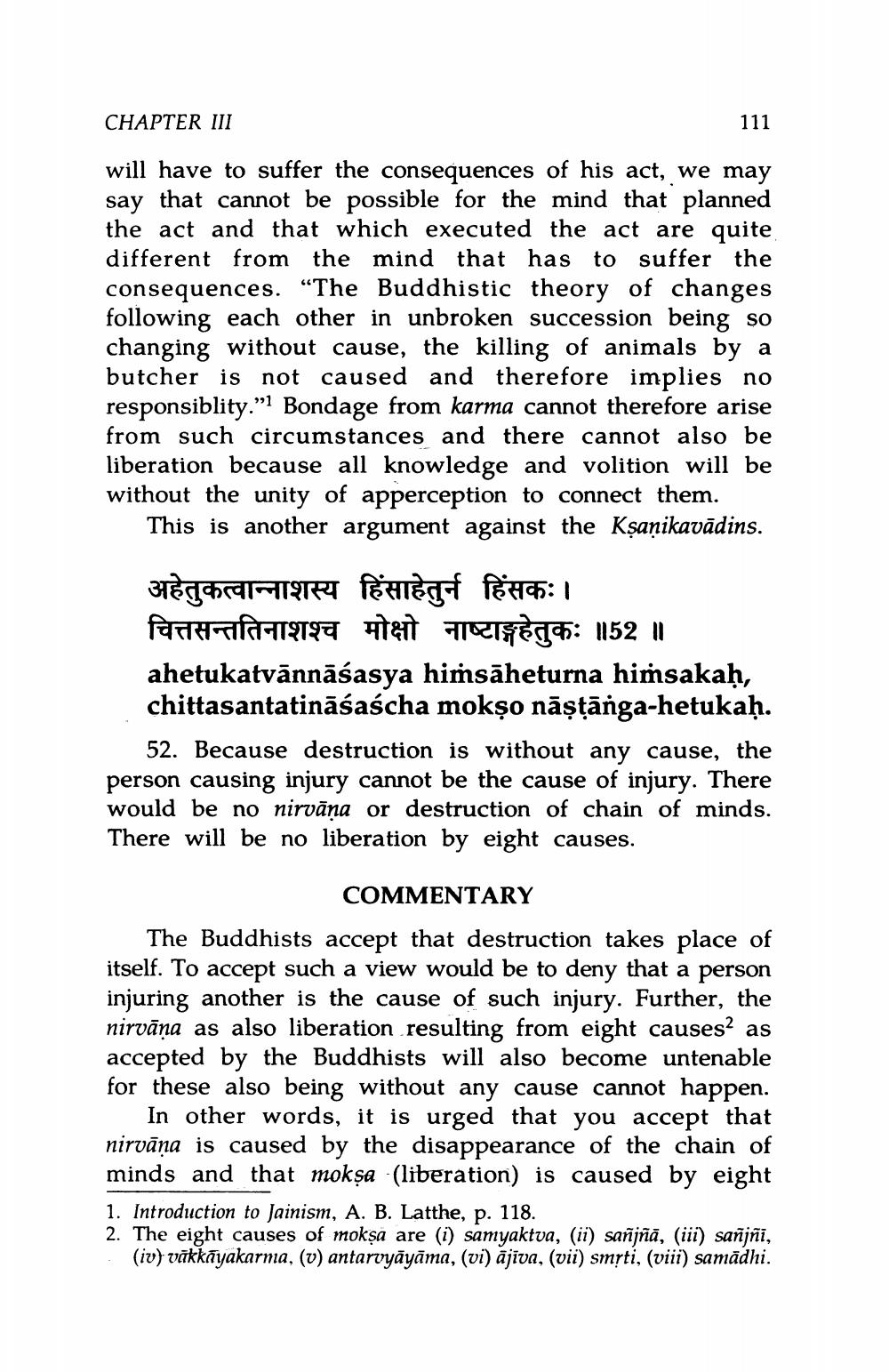________________
CHAPTER III
111
will have to suffer the consequences of his act, we may say that cannot be possible for the mind that planned the act and that which executed the act are quite different from the mind that has to suffer the consequences. “The Buddhistic theory of changes following each other in unbroken succession being so changing without cause, the killing of animals by a butcher is not caused and therefore implies no responsiblity."1 Bondage from karma cannot therefore arise from such circumstances and there cannot also be liberation because all knowledge and volition will be without the unity of apperception to connect them.
This is another argument against the Kşaņikavādins.
अहेतुकत्वान्नाशस्य हिंसाहेतुर्न हिंसकः। चित्तसन्ततिनाशश्च मोक्षो नाष्टाङ्गहेतुकः ॥52 ॥ ahetukatvānnāśasya himsāheturna himsakaḥ, chittasantatināśaścha mokṣo nāştānga-hetukaḥ.
52. Because destruction is without any cause, the person causing injury cannot be the cause of injury. There would be no nirvāņa or destruction of chain of minds. There will be no liberation by eight causes.
COMMENTARY The Buddhists accept that destruction takes place of itself. To accept such a view would be to deny that a person injuring another is the cause of such injury. Further, the nirvāṇa as also liberation resulting from eight causes? as accepted by the Buddhists will also become untenable for these also being without any cause cannot happen.
In other words, it is urged that you accept that nirvāṇa is caused by the disappearance of the chain of minds and that mokṣa (liberation) is caused by eight 1. Introduction to Jainism, A. B. Latthe, p. 118. 2. The eight causes of moksa are (i) samyaktva, (ii) sanjñā, (iii) sanjñi,
(iv) vākkāyakarma, (v) antarvyāyāma, (vi) ājīva, (vii) smrti, (viii) samādhi.




